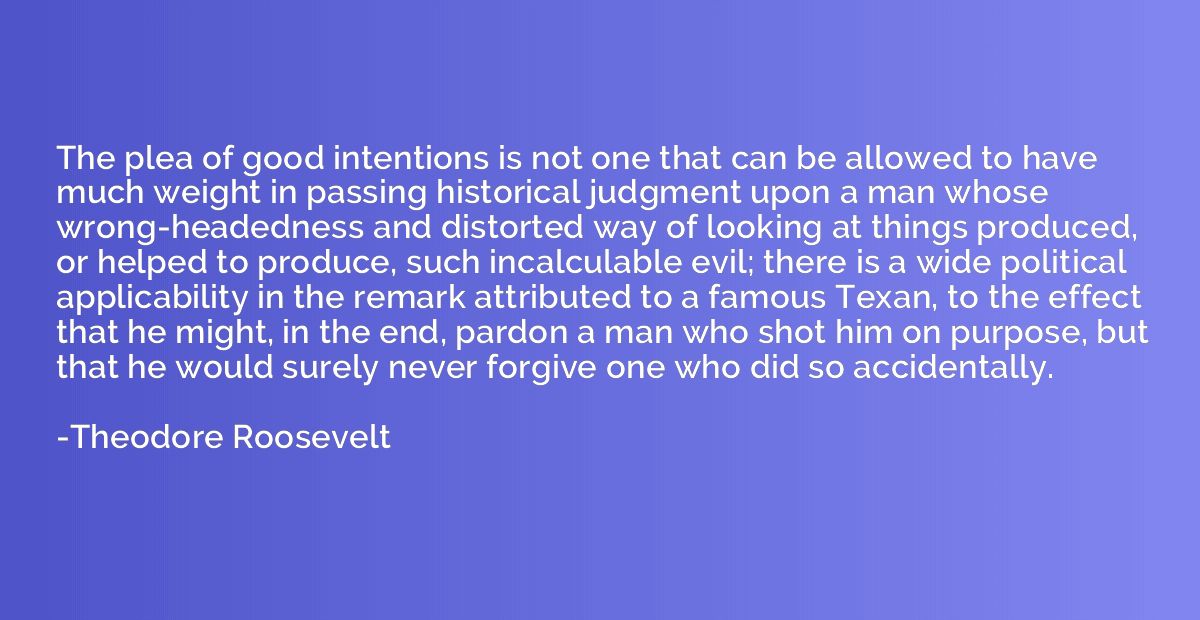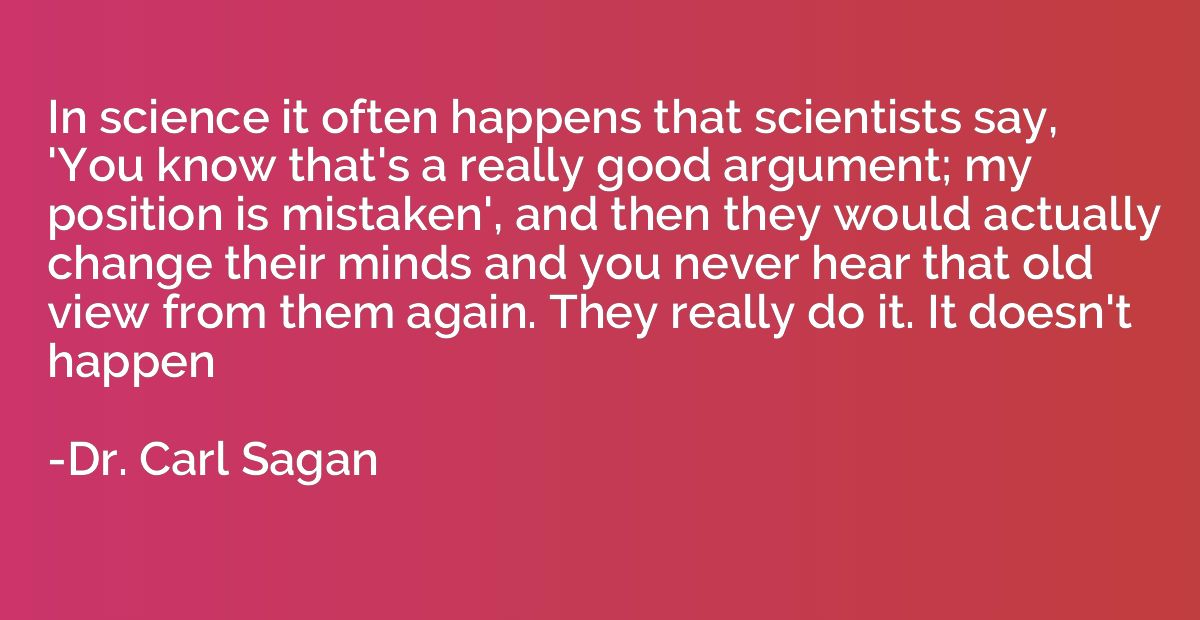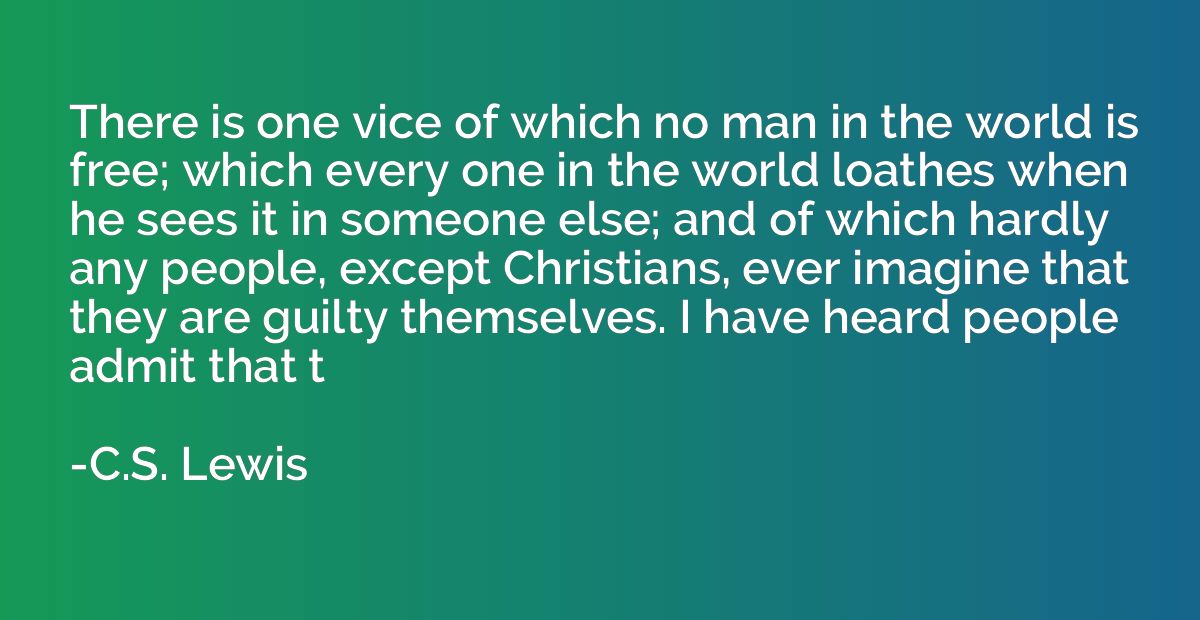Quote by Theodore Roosevelt
The plea of good intentions is not one that can be allowed to have much weight in passing historical judgment upon a man whose wrong-headedness and distorted way of looking at things produced, or helped to produce, such incalculable evil; there is a wide political applicability in the remark attributed to a famous Texan, to the effect that he might, in the end, pardon a man who shot him on purpose, but that he would surely never forgive one who did so accidentally.

Summary
This quote highlights the idea that good intentions alone should not excuse the harmful consequences of one's actions. It argues against giving too much importance to someone's intentions when evaluating their historical impact. The quote suggests that when assessing the harm caused by an individual, intentional wrongdoing may be more forgivable than accidental wrongdoing because it reflects a distorted perception of reality. It emphasizes the need to account for the real-world effects of actions rather than merely considering the intentions behind them.














